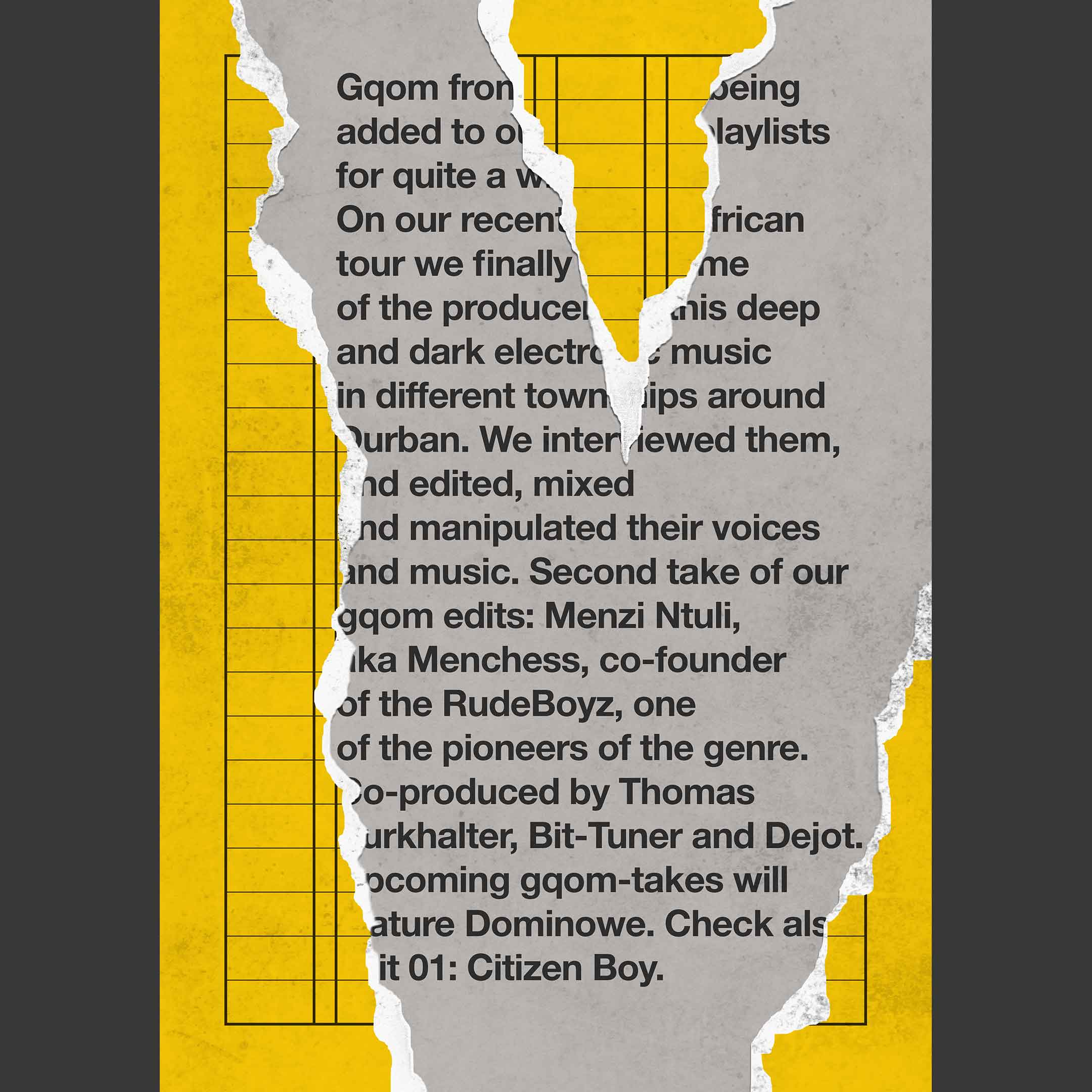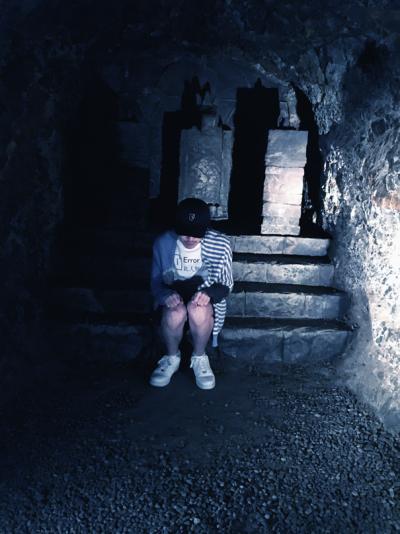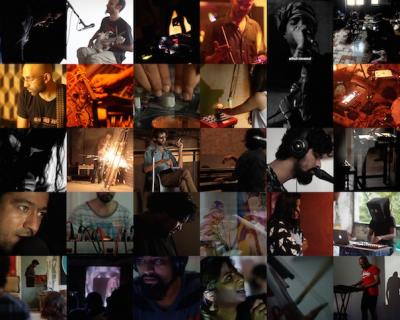South African Gqom Pushes Limits
Gqom from Durban is being added to our Norient playlists for quite a while now. On our recent South African tour we finally met some of the producers of this deep and dark electronic music in different townships around Durban. We interviewed them, and edited, mixed and manipulated their voices and music. Second take of our gqom edits: Menzi Ntuli, aka Menchess, co-founder of the RudeBoyz, one of the pioneers of the genre. Co-produced by Thomas Burkhalter, Bit-Tuner and Dejot. Upcoming gqom-takes will feature Dominowe. Check also edit 01: Citizen Boy.
[Gqom] Edits - Interview with Menchess [Free Download]
#minibuses #taxi
«Every time when you are in a [minibus] taxi They would play […] bass music. That's how they attract people to get into the taxis. So when I used to go to school I would listen to this music, I say hey man, hey, like how do I try and make this music? How do people produce this music?»
Menchess, 2016
#Durban #recognition
«[Gqom] didn’t pick up, until it went outside Durban.»
Menchess, 2016
#masculinity
«Gqom mentality hey, it’s […] a man mentality, it’s a masculine mentality.»
Menchess, 2016
#innovation #future
«What I’m scared about is that if I buy those new gears, maybe MIDI programs and stuff and big sounds and new programs, that gqom will lose the authenticity that it has. Because in order to produce gqom, I think you have to be from Durban, like you have to be in this kind of environment […] I could go to a professional studio, maybe sit there and try to produce gqom, I don’t know, maybe it won’t sound – it will sound too clean […] it won’t be so much […] raw and stuff.»
Menchess, 2016
Impressions
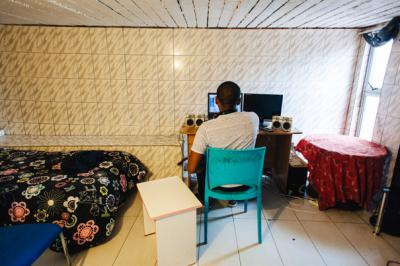
#democratization #production
«I’m making music here in my house, in my bedroom, [a friend told me]. Bedroom? And I was like let me see man, and he showed me a program […] Fruity Loops. […] I was so surprised in how easy this was to put loops, put beats together […] I went home and cried […] for my mother to buy me a computer.»
Menchess, 2016
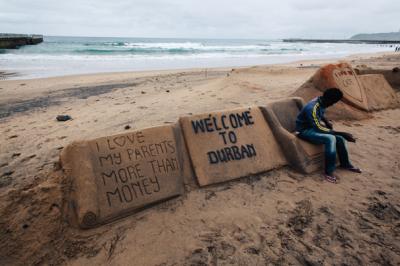
#travelling #Johannesburg #dreams
«If I wasn’t a gqom producer, until now I would not have made it to Johannesburg […] the place is so […] close but if I wasn’t a DJ I wouldn’t.»
Menchess, 2016
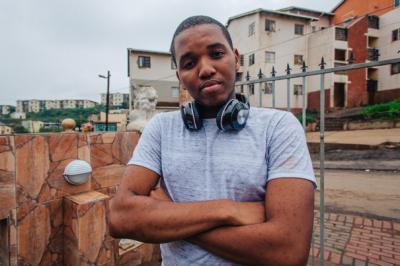
#parents #Apartheid #poverty
«Firstly, […] my parents were […] against me, […] against music because that’s how parents are here in South Africa, mostly to the young children because they grew up hard like because of Apartheid and stuff so […] black people, what they know is a child must study, must become a doctor, he must become a lawyer, that’s the only way to make it here in this country because of poverty and stuff. […] but I continued to do it anyways. I said oh, I’m going to show you.»
Menchess, 2016
Gqom Edit Series
Biography
Biography
Biography
Published on May 10, 2017
Last updated on August 11, 2020
Topics
Why is a female Black Brazilian MC from a favela frightening the middle class? Is the reggaeton dance «perreo» misogynist or a symbol of female empowerment?
Why does a Kenyan producer of the instrumental style EDM add vocals to his tracks? This topic is about HOW things are done, not WHAT.
Why Asia is not a continent and how the aesthetics of the NON Worldwide collective create new utopian notions of multi-centred origins.
How does the artits’ relationship to the gear affect music? How to make the climate change audible?
From Korean visual kei to Brazilian rasterinha, or the dangers of suddenly rising to fame at a young age.
Snap
